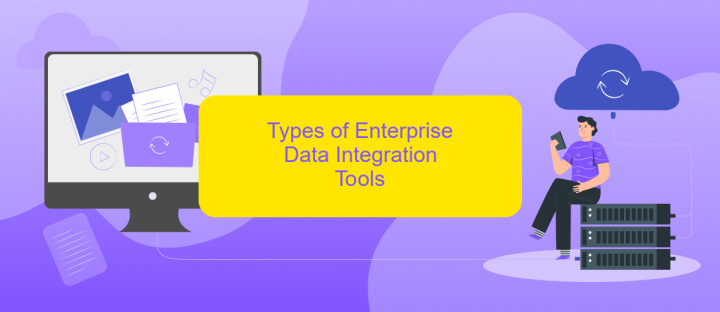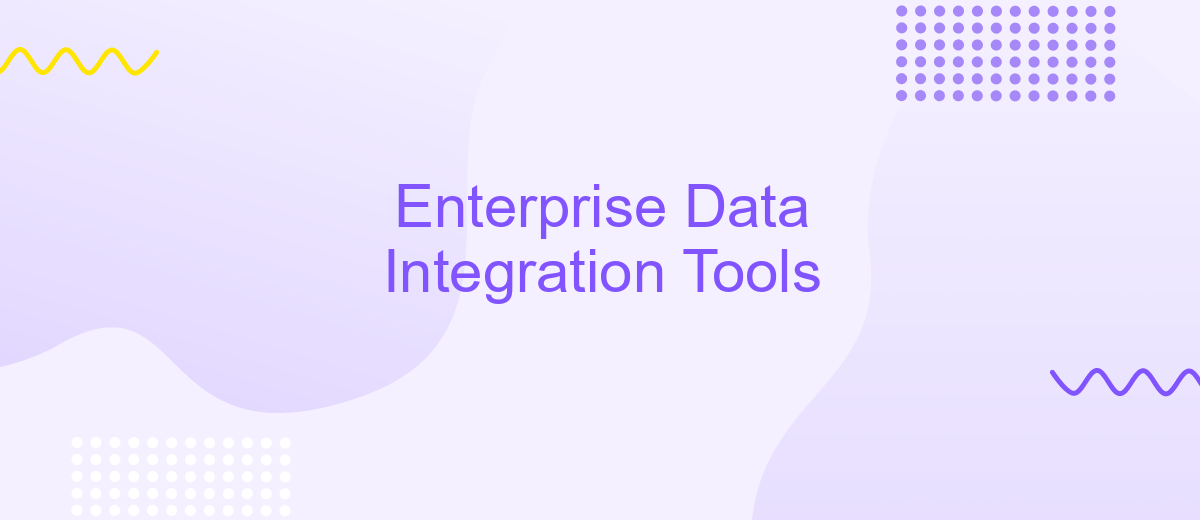Enterprise Data Integration Tools
In today's data-driven world, enterprise data integration tools are essential for businesses seeking to harness the full potential of their data. These tools enable seamless data flow across diverse systems, improving efficiency, decision-making, and collaboration. By integrating various data sources, organizations can achieve a unified view of their operations, driving innovation and maintaining a competitive edge.
Introduction
In the modern business landscape, the ability to efficiently integrate and manage data from various sources is crucial for organizational success. Enterprise Data Integration Tools are designed to streamline this process, ensuring that data from disparate systems can be consolidated, analyzed, and utilized effectively. These tools play a vital role in enhancing decision-making, improving operational efficiency, and driving innovation.
- Data Consolidation: Aggregates data from multiple sources into a unified view.
- Data Transformation: Converts data into a compatible format for analysis and reporting.
- Data Quality Management: Ensures the accuracy and consistency of data.
- Real-time Data Integration: Enables timely access to data for immediate decision-making.
One notable service in this domain is ApiX-Drive, which simplifies the integration process by allowing businesses to connect various applications and data sources without the need for extensive coding. By leveraging such tools, organizations can achieve seamless data flow, reduce manual intervention, and focus on deriving actionable insights from their data. As the demand for efficient data management continues to grow, the importance of robust Enterprise Data Integration Tools cannot be overstated.
Key Features and Benefits

Enterprise Data Integration Tools provide a streamlined approach to connecting disparate data sources, ensuring seamless data flow across various applications. One of the key features is the ability to automate data synchronization, reducing manual effort and minimizing errors. These tools often come with pre-built connectors for popular applications, making it easier to set up integrations quickly. For example, ApiX-Drive offers an extensive library of connectors and a user-friendly interface, enabling businesses to automate workflows without needing extensive technical expertise.
Another significant benefit is enhanced data quality and consistency. By centralizing data integration processes, organizations can enforce data governance policies and maintain a single source of truth. This leads to more accurate reporting and better decision-making. Additionally, Enterprise Data Integration Tools support real-time data processing, allowing businesses to respond swiftly to changing conditions. Scalability is also a crucial feature, as these tools can handle increasing data volumes and complexity, ensuring they grow alongside your business needs.
Types of Enterprise Data Integration Tools

Enterprise data integration tools are essential for businesses aiming to streamline their data management processes. These tools help in consolidating data from various sources, ensuring data consistency, and improving accessibility for analysis and reporting.
- ETL Tools (Extract, Transform, Load): These tools extract data from different sources, transform it into a suitable format, and load it into a target database or data warehouse.
- Data Replication Tools: These tools replicate data from one database to another in real-time or at scheduled intervals, ensuring data consistency across systems.
- Data Virtualization Tools: These tools provide a unified view of data from multiple sources without physically moving the data, enabling real-time access and analysis.
- API Integration Tools: Tools like ApiX-Drive facilitate the integration of various applications and services through APIs, automating workflows and enhancing data connectivity.
Choosing the right data integration tool depends on specific business needs, data complexity, and the desired level of automation. Tools like ApiX-Drive offer flexible and scalable solutions that can adapt to various integration scenarios, making them an excellent choice for modern enterprises.
Selection Criteria

Selecting the right Enterprise Data Integration Tool is crucial for ensuring seamless data flow and operational efficiency. The first step is to identify your specific business needs and integration requirements. Consider the types of data sources you are dealing with and the complexity of the integration processes.
Another important factor is the scalability and flexibility of the tool. As your business grows, the integration tool should be able to handle increased data volumes and new data sources without significant reconfiguration. Additionally, user-friendliness and ease of implementation are key aspects to look for, especially if your team lacks extensive technical expertise.
- Compatibility with existing systems and software
- Real-time data processing capabilities
- Robust security features to protect sensitive data
- Comprehensive support and documentation
- Cost-effectiveness and ROI
For businesses looking for a versatile and user-friendly solution, ApiX-Drive can be an excellent choice. It offers a wide range of integrations with various platforms and provides an intuitive interface that simplifies the setup process. By considering these criteria, you can select a tool that best fits your organizational needs and ensures efficient data management.
Conclusion
Enterprise data integration tools play a crucial role in streamlining business processes, enhancing data accessibility, and improving decision-making capabilities. By effectively consolidating data from various sources, these tools enable organizations to maintain data consistency and ensure real-time data availability. This, in turn, empowers businesses to respond swiftly to market changes and customer needs, driving overall efficiency and growth.
Among the myriad of integration solutions available, ApiX-Drive stands out as a versatile and user-friendly platform. Its robust features facilitate seamless integration between disparate systems, reducing the complexity of data management. With ApiX-Drive, organizations can automate workflows, minimize manual intervention, and achieve higher levels of data accuracy. In conclusion, investing in reliable data integration tools like ApiX-Drive is essential for businesses aiming to stay competitive in today's data-driven landscape.
FAQ
What is Enterprise Data Integration?
Why is data integration important for businesses?
What are some common challenges in data integration?
How can automation tools help in data integration?
What should I consider when choosing a data integration tool?
Apix-Drive is a simple and efficient system connector that will help you automate routine tasks and optimize business processes. You can save time and money, direct these resources to more important purposes. Test ApiX-Drive and make sure that this tool will relieve your employees and after 5 minutes of settings your business will start working faster.

